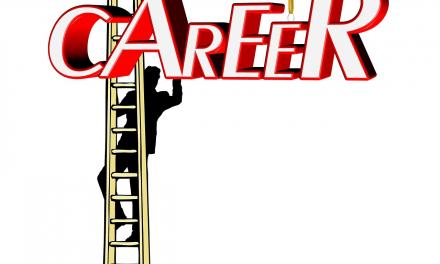Latin, Classical Greek, ancient history, philosophy – these are some of the subjects that fall under the category of ‘classics’.
Some wrongfully believe classics subjects to be so firmly rooted in the past, that they equip students with few skills for the modern world.
Yet as it turns out, there are bright futures to be found in age-old subjects, as the typical classics student is a critical thinker, deeply knowledgeable on culture, and highly adept at applying their skills from one problem to another.
However the right career advice, and further education, is essential if classics students are to overcome adversity, as their employment rates are significantly impacted as compared to their mainstream counterparts:
Six months after leaving university, only 51.6% of 2008 classics graduates were in employment compared with 61.5% of graduates in other subjects.
With so much to offer, it’s little wonder that classics students have an array of promising career paths to follow – and here are just five of the most popular.
Archivist
It’s not just libraries and museums that need archivists to manage their records and documents. Corporations are also interested in managing their data archives and customer records.
In today’s digital society, archivists need have a working knowledge of computer systems and storage options, as well as the more traditional methods of preserving items for future generations.
As an archivist, you will be expected to:
- Purchase, catalogue and maintain documents and other materials that have historical and cultural importance
- Look after photographs, prints, films and computer-generated records
- Catalogue collections and manage records
- Digitise documents and records to preserve the originals
Heritage manager
As a heritage manager, your role will be to manage and conserve heritage sites. These could be historic listed buildings or sites, ancient monuments or any other properties that have historical significance and need to be preserved and maintained.
The job could include:
- Sourcing donations from government, charities, high net-worth individuals, corporations and the general public
- Developing plans to maintain a community’s culture or a region’s industrial legacy
- Meeting and liaising with clients to negotiate and agree research projects
- Planning to support the ongoing management of the site through commercial activities
Market researcher
Market research is the collation and analysis of data and information that leads to your clients making informed decisions about future projects. It is also essential to conduct market research to find out how well a product or service has been received.
It is also the bedrock of modern politics, with market researchers embedded in government and political parties to help them judge how well (or otherwise) a particular policy will be accepted by voters.
As a market researcher, you will be expected to:
- Collect and analyse data and information to provide advice to clients on political, social and economic decisions
- Meet with clients to negotiate and agree research projects
- Brief clients with data essential to the planning of future products and plans
- Write clear and concise reports, and present them to clients in a professional manner
Careers can vary from those that use historical knowledge, in roles such as museum education or exhibitions officer or archivist, historic buildings inspector or conservation officer to those that use the classics graduate’s understanding of language in roles within advertising, editorial work or public relations.
Now for two career paths that will lead the classics student into further education…
Barrister
A barrister is a lawyer who can represent a client in a court of law. They are expected to be experts in their field, and comfortable presenting evidence to a court using persuasive and clear language.
Barristers are hired by solicitors (and their clients) and are often self-employed or working for government agencies such as the Crown Prosecution Service.
If you have joined a debating club at school or university and you win your debates more often than not, there’s a good chance that you will succeed as a barrister (or politician!).
Barristers will be expected to:
- Represent individuals in court
- Provide independent legal advice and offer impartial and expert advice to clients
- Research points of law to present in court on their client’s behalf
- Meet with clients to plan a legal strategy to win their case
Additional further education required post-school: Law degree – 3 years + GDL + BPTC (an additional 1 year) + 1 year working in barrister’s chamber
Chartered accountant
Chartered accountants are essential to corporate governance and structures. Board-level financial directors will almost always be qualified accountants with years of experience and knowledge of financial management and best practice.
Your opportunities as a chartered accountant can include:
- Involvement in financial reporting, taxation, auditing, forensic accounting, corporate finance, business recovery and insolvency, or accounting systems and processes
- Providing advice, auditing accounts and offering trustworthy guidance
- Advising clients on tax planning, mergers and acquisitions, and insolvency
- Preparing and reporting on monthly, quarterly and annual accounts, and identifying any irregularities.
Additional further education required post-school: 3 years following a degree – for more information read this guide from ICAS
Studying classics can demonstrate a clear aptitude for learning and tackling challenging academic concepts. For the employer, the classics student offers practical, intellectual and theoretical skills, and with the right career advice, can enter any number of jobs markets.









